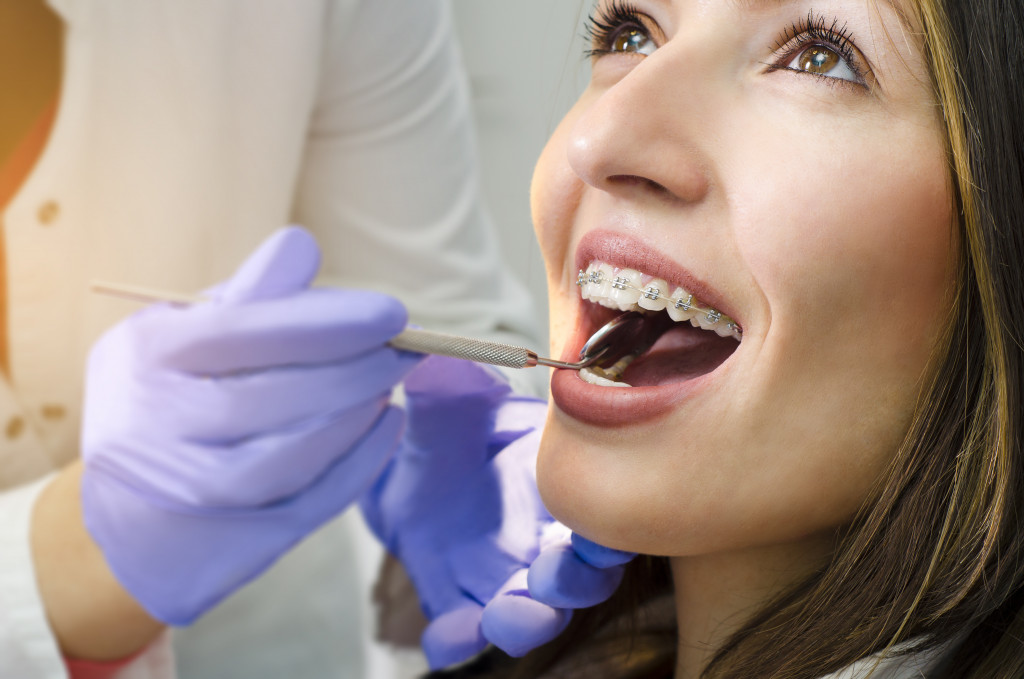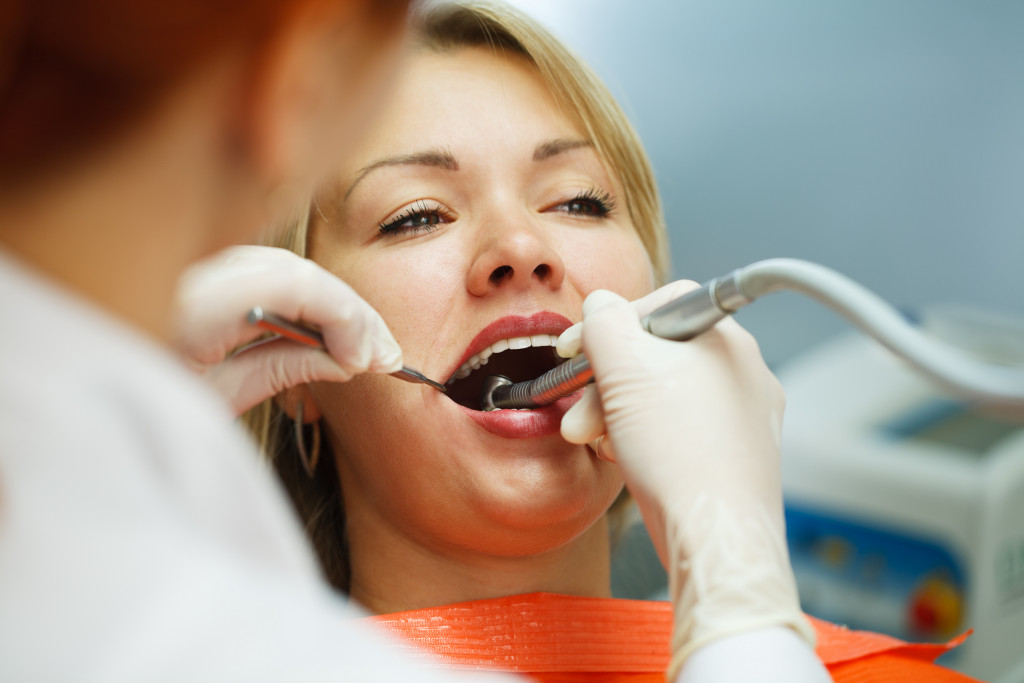Dental care is crucial to overall health. Yet people sometimes forget how they need to look after their teeth. The result is some bad habits that lead to frequent tooth aches, at the least, and lost teeth, at the most. What are some bad habits that affect dental health?
Below are ten reasons your teeth could be hurting:
1. Eating acidic foods often
Why is eating acidic food bad for your teeth? Acidic food is bad for your teeth because it can lead to gum disease and tooth decay. For example, drinking orange juice every day could erode the enamel on your teeth over time.
2. Staying up too late or sleeping in
Some people might think that they don’t need to brush their teeth before going to sleep since they aren’t eating anything — but this isn’t true. When you wake up with a dry mouth after not brushing your teeth at night, bacteria get into plaque and feed off of leftover food particles. This eventually leads to cavities forming between the gums and the surface of the tooth.
You should be brushing immediately when you wake up (even if you went to bed without doing so) and before you go to bed.
3. Smoking cigarettes, chewing tobacco and other substances that cause oral cancer
Smoking is bad for your heart, lungs, and overall health. It can cause tooth loss by preventing blood flow throughout the body including the mouth area. For example, nicotine constricts blood vessels which restricts oxygen from reaching teeth.
If you are a smoker who doesn’t want to quit completely, there are other things you can do to help improve dental hygiene such as brushing twice each day with fluoride toothpaste or flossing at least once per day before going to sleep.
4. Using too much whitening product
When it comes to using whitening strips or any type of over-the-counter whiteners that contain hydrogen peroxide, only use as much as the package recommends. If you end up using too many strips at one time, your teeth will be more sensitive to hot and cold liquids or food that can cause pain.
Using any type of whitening product with baking soda is safe, but only use a toothpaste recommended by your dentist.
5. Trying out new ways to brush without consulting a dentist first
Your best bet for a healthy smile is to consult with your dentist about the best way to brush and floss your teeth. Different people need different techniques based on their dental history, type of braces or appliances they wear and other oral health issues.
Sometimes people think that using an electronic toothbrush is better than manual brushing, but this isn’t always true. Manual toothbrushes can be just as effective when used correctly and in the right way for you.
Changing up your brushing habits without consulting with a professional could lead to more plaque build-up, gingivitis, cavities and even lost teeth.
6. Not flossing regularly
Do you really need to floss to keep your teeth healthy? Yes. Flossing is one of the most effective ways to remove plaque and bacteria from in between your teeth and below the gum line where a toothbrush can’t reach.
If you have tight spaces between your teeth, use dental floss or an interdental brush (a small, thin brush that looks like a pipe cleaner).
7. Using the teeth to crack hard nuts of ice cubes
Some people have a habit of using their teeth as a “tool” for all sorts of things, from ice to nuts. What impact will this habit have on your teeth? It depends.
People who crack ice cubes often end up damaging the enamel on their teeth which can lead to cavities if they don’t use other ways to get at this type of food. Use a spoon or glass instead.
Using your teeth as tools for things like nuts, gum and chewing tobacco could also cause damage over time that will require dental treatment by an expert dentist.
Cracking hard food between the back molars is bad because it puts pressure on these already-sensitive areas, causing pain and discomfort. You could lose a tooth; sure, you can undergo a dental implant process to replace it, but it’s better to prevent than treat, as the saying goes.
8. Drinking a lot of coffee or tea
What makes coffee or tea bad for your dental health? It’s the temperature. Hot drinks can cause damage to your teeth because they might burn or dry out the enamel which could lead to toothaches, cavities and other problems with chewing food in general.
If you must drink hot beverages like coffee or tea make sure you follow these steps:
Sip slowly; don’t gulp down a cup of hot liquid. If it’s too hot for your mouth, wait until it cools off before taking another sip. Take small sips instead of big ones.
9. Eating sugary foods and drinks
Sugar is a major culprit in tooth decay and cavities. People who eat too much sugar often have more plaque build-up than those who don’t because this type of food provides fuel for the bacteria that causes dental problems.
What kinds of drinks are considered sugary?
Any beverage with added sugars such as soda, juice, sports drinks or sweet tea; they’re all bad news when it comes to your teeth since they increase the risk of cavities by creating an acidic environment, which can dissolve enamel over time if there isn’t enough saliva being produced during consumption or drinking through a straw. Using a straw will help reduce contact the liquid and teeth, but may not work with all drinks.
10. Not going to the dentist for routine check-ups and cleanings
This is another bad dental habit; not going to the dentist for routine check-ups and cleanings. Some people are nervous about their first visit, so they avoid it. But this can lead to more problems down the road when you don’t catch them early on.
For example, if cavities aren’t treated right away they will grow bigger which requires different procedures that might cost a lot of money or require general anesthesia, depending on severity. If these larger ones aren’t removed properly during treatment at an orthodontist’s office, there could be damage done to nearby areas like your gums or jawbone instead of just individual teeth since cavities spread fast. A few missed visits may not seem like much now but over time, they can do grave damage.
So there you have it. The ten bad habits that can lead to toothaches and other dental problems down the road. Be sure to avoid them as much as possible and always brush and floss after meals.

